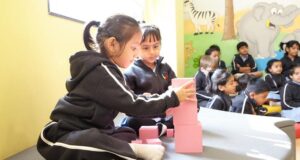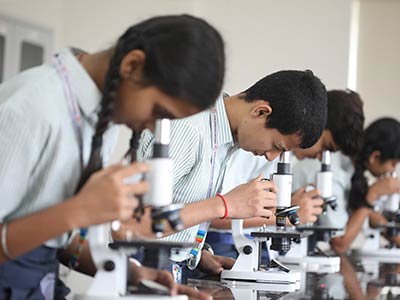Download our FREE Academic Calendar now! 📚 Start your child’s journey to success.
Choosing the best international school in Pune for your child is a critical decision, and it is essential to conduct thorough research before making a final selection. The school you choose will significantly impact your child’s academic and personal growth, so it is important to ask the right questions before enrolling them in a new institution.
There are several factors to consider when choosing a school, including its academic curriculum, extracurricular activities, teacher-to-student ratio, safety measures, and community involvement. Each of these factors can greatly influence your child’s experience and success in school, so it’s essential to ask questions that will help you make an informed decision.
As a parent or guardian, choosing the right school for your child is an important decision. When it comes to private schools, the decision becomes even more critical, as private schools have different philosophies, values, and admission requirements than public schools. In this blog, we will discuss some must-have questions to ask private schools.
Must Have Questions to Ask Private Schools
1. What is the school’s philosophy and mission statement?
The philosophy and mission statement of a school are important indicators of the school’s values and priorities. Understanding the school’s philosophy and mission statement will help you determine if the school is a good fit for your child.
2. What is the school’s academic program like?
Academics are a critical aspect of any school. Ask about the curriculum, the teaching methodology, and how the school measures success.
3. What is the school’s approach to discipline?
Discipline is an important aspect of any school, and it is important to know how the school handles disciplinary issues. Ask about the school’s approach to discipline, including its policies and procedures.
4. What is the teacher-student ratio?
The teacher-student ratio is an important factor in determining the quality of education your child will receive. A low teacher-student ratio allows for more individualized attention and support.
5. What is the school’s approach to diversity and inclusion?
Diversity and inclusion are important values that should be instilled in any school. Ask about the school’s approach to diversity and inclusion and how it ensures that all students feel welcome and supported.
6. What extracurricular activities does the school offer?
Extracurricular activities are important for a child’s social and emotional development. Ask about the extracurricular activities the school offers, including sports, clubs, and other programs.
7. What is the school’s policy on homework?
Homework can play a significant role in a child’s education. Ask about the school’s homework policy, including the amount of homework given and how it is graded.
8. What is the school’s approach to technology?
Technology is an essential aspect of modern education. Ask about the school’s approach to technology, including how it is integrated into the curriculum and how it is used in the classroom.
9. What is the school’s approach to standardized testing?
Standardized testing is a critical aspect of any school’s academic program. Ask about the school’s approach to standardized testing, including how it prepares students and how it measures success.
10. What is the school’s approach to special education?
If your child has special needs, it is important to know how the school will support them. Ask about the school’s approach to special education, including the programs and services it offers.
11. What is the school’s approach to college preparation?
If your child plans to attend college, it is important to know how the school will prepare them. Ask about the school’s approach to college preparation, including college counseling and the percentage of graduates who attend college.
12. What is the school’s approach to parent-teacher communication?
Parents-teacher communication is very important for a child’s success. Ask about the school’s approach to parent-teacher communication, including how often teachers communicate with parents and what methods are used.
13. What is the school’s approach to community service?
Community service is an important aspect of a child’s education. Ask about the school’s approach to community service, including the programs and opportunities it offers.
14. What is the school’s approach to safety and security?
Safety and security are critical aspects of any school. Ask about the school’s approach to safety and security, including its policies and procedures.
15. What are the facilities in the school?
Private schools often have state-of-the-art facilities, including libraries, science labs, and athletic fields. It’s important to ask about the condition of these facilities and any associated costs.
16. What is the qualification of the teachers?
Private schools often have highly qualified and experienced teachers. It’s important to ask about the teacher’s qualifications, including their education, experience, and certifications.
17. What is the school’s admission process like?
The admission process is the final step in determining if a private school is the right fit for your child. The admission process can vary from school to school, but there are a few common factors to consider like application requirements, admission criteria, timeline, touring the school, financial aid, etc.
Conclusion
Choosing a CBSE international school for your child is a significant decision that requires careful consideration. Asking the right questions during the selection process is essential in ensuring that you find a school that meets your child’s needs and fits your family’s values and beliefs.
Asking questions about a private school’s philosophy, values, and culture is essential to understanding whether the school is the right fit for your child. Additionally, questions about the school’s academic programs, extracurricular activities, and teacher qualifications can help you evaluate the quality of education your child will receive.
It’s also important to consider the cost of tuition and any available financial aid options. Finally, the admission process is the final step in determining if a private school is the right fit for your child, and it’s essential to be aware of the requirements and timeline for the process.
FAQs
1. What is an admission checklist?
An admission checklist is a list of items or tasks that must be completed before a person can be considered for admission to a school, university, or program. It serves as a guide to ensure that applicants have completed all the necessary requirements and have provided all the required documentation to be considered for admission.
2. How do I choose the right school?
Choosing the right school is an important decision that can have a significant impact on your academic and personal development. Here are some factors to consider when choosing a school: Program offerings, Location, School Size, Academic resources, Faculty, Student life, Reputation, Cost.
3. What are the steps for admission?
Research: Before applying, research different schools and programs to determine which ones align with your interests and career goals.
Meet Admission Requirements: Review the admission requirements of each school and program you are interested in. These can include academic qualifications, standardized test scores, letters of recommendation, essays or personal statements, and more.
Submit Application: Submit your application by the specified deadline. Some schools may use a common application, while others may require a specific application for each program.
Pay Application Fee: Pay any application fees required by the institution.
Interviews: Some schools may require interviews as part of the admission process.
Wait for Admission Decision: Wait for the admission decision from the school. Some schools may offer an early decision or early action option, while others may have a regular decision process.
4. What should I look for before school admission?
Before school admission, there are several things you should look for to ensure that you are making the best decision for your child’s education. Some important considerations are – curriculum, teacher qualifications, class size, facilities, extra-curricular activities, cost, locations.
5. Which age is best for school admission?
Children of ages between 4-6 can be admitted to a school.































